There is no advanced sign-up for workshops. Workshops will be filled on a first-come, first-served basis.
VSS Workshop for PhD Students and Postdocs:
|
|
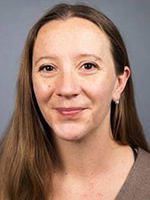 Michelle Greene, Bates College Michelle Greene, Bates CollegeMichelle R. Greene is an Assistant Professor of Neuroscience at Bates College, where she heads the Bates Computational Vision Laboratory. Her work examines the temporal evolution of high-level visual perception. She received her PhD from MIT in 2009, and did postdoctoral work at Harvard Medical School and Stanford University before joining Bates in 2017. |
|
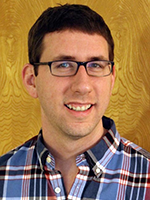 Tim Brady, UCSD Tim Brady, UCSDTimothy Brady is an Asst. Professor in the Department of Psychology at the University of California, San Diego, where he started in 2015, ending his need to think about the faculty job market forever (he hopes). His research uses a combination of behavioral, computational and cognitive neuroscience methods to understand the limits on our ability to encode and maintain information in visual memory. He received his B.A. in Cognitive Science from Yale University ’06, his Ph.D. from MIT in Brain and Cognitive Sciences ’11 and conducted postdoctoral research in the Harvard University Vision Sciences Laboratory ’11-’15. |
|
 Nicole Rust, University of Pennsylvania Nicole Rust, University of PennsylvaniaNicole Rust is an Associate Professor in the Department of Psychology. She received her Ph.D. in neuroscience from New York University, and trained as a postdoctoral researcher at Massachusetts Institute of Technology before joining the faculty at Penn in 2009. Research in her laboratory is focused on understanding the neural basis of visual memory, including our remarkable ability to remember the objects and scenes that we have encountered, even after viewing thousands, each only for few seconds. To understand visual memory, her lab employs a number of different approaches, including investigations of human and animal visual memory behaviors, measurements and manipulations of neural activity, and computational modeling. She has received a number of awards for both research and teaching including a McKnight Scholar award, an NSF CAREER award, a Alfred P. Sloan Fellowship, and the Charles Ludwig Distinguished teaching award. Her research is currently funded by the National Eye Institute at the National Institutes of Health, the National Science Foundation, and the Simons Collaboration on the Global Brain. |
|
|
|
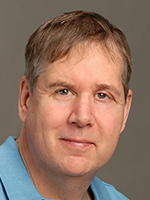 David Brainard, University of Pennsylvania David Brainard, University of PennsylvaniaDavid H. Brainard is the RRL Professor of Psychology at the University of Pennsylvania. He is a fellow of the Optical Society, ARVO and the Association for Psychological Science. At present, he directs Penn’s Vision Research Center, co-directs Penn’s Computational Neuroscience Initiative, co-directs Penn’s NSF funded certificate program in Complex Scene Perception, is on the Board of the Vision Sciences Society, and is a member of the editorial board of the Journal of Vision. His research interests focus on human color vision, which he studies both experimentally and through computational modeling of visual processing. He will be moderating this session. |
|
VSS Workshop for PhD Students and Postdocs:
|
|
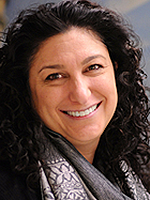 Allison Sekuler, McMaster University Allison Sekuler, McMaster UniversityDr. Allison Sekuler is Vice-President of Research and the Sandra A. Rotman Chair at Baycrest Health Sciences. She came to Baycrest from her position as a Professor in the Department of Psychology, Neuroscience & Behaviour at McMaster University, where she was the first Canada Research Chair in Cognitive Neuroscience (2001-2011). She is also the Co-Chair of the Academic Colleagues at the Council of Ontario Universities and Chair of the Natural Sciences and Engineering Research Council of Canada‘s (NSERC) Scholarships & Fellowships group along with being a member of NSERC’s Committee for Discovery Research. The recipient of numerous awards for research, teaching and leadership, Dr. Sekuler has a notable record of scientific achievements in aging and vision science, cognitive neuroscience, learning and neural plasticity, and neuroimaging and neurotechnology, as well as extensive experience in senior academic and research leadership roles. |
|
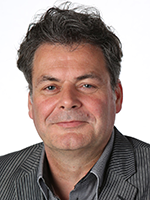 Frans Verstraten, University of Sydney Frans Verstraten, University of SydneyProfessor Frans Verstraten is the McCaughey Chair of Psychology at the University of Sydney and Head of School. He was a board member and former president of the Vision Sciences Society. Before his move to Australia in 2012 he was also active in the domains of the popularization of science and science communication. Among other things, he gave many talks for the general audience, participated in a popular science TV-show for several years, and wrote columns in a national newspaper and several magazines. He has been a member of many national and international committees where he represents the psychological and behavioural sciences. Currently, he tries to convince the University’s marketing and communication teams to understand the power of good press releases (and to refrain from making unwarranted statements to spice research results up). |
|
 Morgan Ryan, SpringerNature Morgan Ryan, SpringerNatureWith over eight years of experience in scholarly publishing, Morgan Ryan is a Senior Editor in Behavioral Sciences at Springer, part of Springer Nature. As the Publishing Development Editor for more than 14 psychology journals, including the Psychonomic Society journals, she has extensive experience in research promotion and journal strategy. Among other projects, she has organized and presented research-publishing workshops for graduate students and early career scholars. She enjoys initiating and coordinating press office activity between Springer and the Psychonomic Society to increase the public visibility of science. |
|
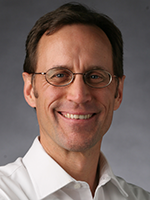 Jeff Schall, Vanderbilt University Jeff Schall, Vanderbilt UniversityThe session will be moderated by Jeff Schall, who is the E. Bronson Ingram Professor of Neuroscience and Professor of Psychology and of Ophthalmology & Visual Sciences at Vanderbilt University. Schall’s research investigates how the visual system selects targets for and controls the initiation of saccades using cognitive neurophysiology, anatomical and computational approaches. Schall is a founding member of the advisory board for the interdisciplinary major at Vanderbilt, Communication of Science and Technology, through which students master communication tools and techniques, learn science, and are embedded in research programs. He has also been involved in the complexities of communication at the boundary of law and neuroscience. |
|

 James Elder, York University
James Elder, York University